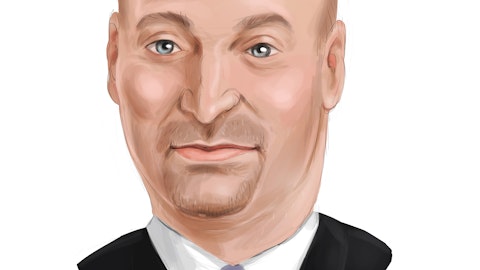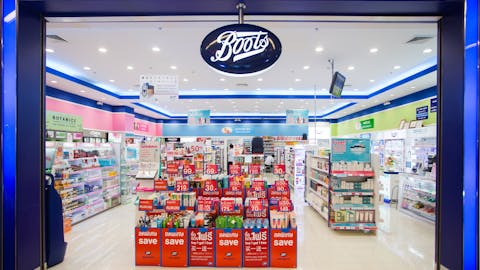#4. Johnson & Johnson (NYSE:JNJ)
– Investors with long positions as of March 31: 77
– Aggregate value of investors’ holdings as of March 31: $5.25 Billion
– Q2 Return: 12.9%
Johnson & Johnson (NYSE:JNJ) received some love from the asset managers tracked by our team during the first three months of 2016, as the number of managers with stakes in the company spiked to 77 from 72 quarter-over-quarter. Our smaller-sized hedge fund industry appears to have made the right bet given that Johnson & Johnson’s shares gained nearly 13% during the June quarter. The health care and medical devices company has seen its market value jump by 18% thus far in 2016, primarily owing to two main reasons. The first reason involves the company’s recession-proof business model, as its healthcare products represent basic-need goods consumers buy regardless of economic conditions. Meanwhile, the second reason behind Johnson & Johnson’s strong performance relates to the strong growth of its high-margin pharmaceutical segment. The company’s pharmaceutical segment sales in the first quarter of fiscal 2016 that ended April 3 were $8.2 billion, an increase of 5.9% year-over-year. Ken Fisher’s Fisher Asset Management had 10.85 million shares of Johnson & Johnson (NYSE:JNJ) among its holdings at the end of the first quarter.
Follow Johnson & Johnson (NYSE:JNJ)
Follow Johnson & Johnson (NYSE:JNJ)
Receive real-time insider trading and news alerts
#3. Gilead Sciences Inc. (NASDAQ:GILD)
– Investors with long positions as of March 31: 93
– Aggregate value of investors’ holdings as of March 31: $4.01 Billion
– Q2 Return: -8.7%
The number of asset managers from our system with stakes in Gilead Sciences Inc. (NASDAQ:GILD) rose to 93 from 89 during the January-to-March quarter, whereas the overall value of those stakes fell by 11% quarter-over-quarter to $4.01 billion. The decrease was partially driven by an 8.8% drop in the value of Gilead shares, but the stock did not perform better in the second quarter of 2016 either. Gilead shares were down 8.7% for the quarter. The stock performance of the California-based drug marker has been weighted by increased pressure on the company to lower prices for its Hepatitis-C treatments. Gilead Sciences continues to hold a dominant 90% of the U.S. market share in Hepatitis-C with its Sovaldi and Harvoni drugs, but fast-toughening competition from industry peers AbbVie Inc. (NYSE:ABBV) and Merck & Co. Inc. (NYSE:MRK) led to increased pricing pressure. For instance, Gilead’s U.S. net product sales of Harvoni in the first quarter of 2016 were $1.4 billion, down from a much higher figure of $3.0 billion reported a year ago. John Armitage’s Egerton Capital Limited reported owning 4.52 million shares of Gilead Sciences Inc. (NASDAQ:GILD) in its 13F for the March quarter.
Follow Gilead Sciences Inc. (NASDAQ:GILD)
Follow Gilead Sciences Inc. (NASDAQ:GILD)
Receive real-time insider trading and news alerts





